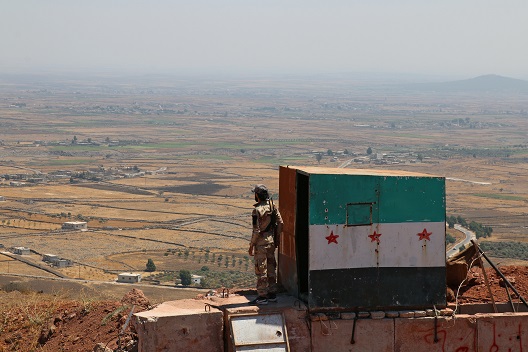 As the year winds down, we look back at insight from experts that resonated with our readers. In case you missed them, we have listed our top blog posts of the year in order of popularity. Take a look at impactful analysis on the MENA region with excerpts from the articles below.
As the year winds down, we look back at insight from experts that resonated with our readers. In case you missed them, we have listed our top blog posts of the year in order of popularity. Take a look at impactful analysis on the MENA region with excerpts from the articles below.
Aaron Stein – How Russia Beat Turkey in Syria – January 26
Turkey has sought to use Moscow to signal to the United States that it has options, beyond the US-Turkish alliance and, by extension, Turkish reliance on NATO for its security. The events in Syria clearly contradict this. Russia is not an ally of Turkey. Instead, Russia is using all the means at its disposal to shape the opposition to serves its end goals of a negotiated settlement on its own terms—goals at odds with Turkish interests.
Emma Beals – The Awkward Space for Syria’s Post Conflict Reconstruction – August 25
The space between legitimate and failed state that Syria now occupies demands that international actors carefully empower transparent and legitimate state functions to regain some degree of stability. The Assad regime, however, looks ready to offer little in the way of real change or reform. Genuine stabilization and reconstruction must address the conflict’s drivers by engaging with independent state bodies and mitigating or marginalizing patronage-driven actors. Assad will not spearhead such change. The question is, to what extent can international agencies and policymakers sidestep his regime?
Fred Hof – Failed Revolution? – September 14
From the perspective of September 2017, it seems that all the wrong people are celebrating the state of affairs in Syria: Bashar al-Assad, Vladimir Putin, and Ali Khamenei top the list. The first has inflicted mass homicide on defenseless civilians for years without shame or remorse. The second intervened decisively two years ago, to save a politically useful mass murderer from military defeat. The third complemented the second by introducing more than a hundred-thousand foreign fighters to prop up a client willing to subordinate Syria to Iran and Hezbollah. All three celebrate the fact that they now dominate militarily some 85 percent of Syria.
Abdulrahman al-Masri – The Decline of the Syrian Elite Forces – September 6
Increasing tensions are hurting the relationship between the Kurdish-led Syrian Democratic Forces (SDF) and the Arab tribal Syrian Elite Forces (SEF) at a time when both groups are cooperating in the battle for Raqqa. On August 25, seven units from the SEF, whose fighters are largely from Deir Ezzor province, defected and joined the SDF’s recently-formed Deir Ezzor Military Council—the coalition of forces that the SDF and the United States are establishing in preparation for the anticipated battle to drive the Islamic State (ISIS, ISIL, Daesh) from Deir Ezzor. While the SEF seemingly remains part of the Raqqa operation alongside the SDF, the prospects for the two groups collaborating are bleak.
Ahmad Abazeid – The Battle for Idlib – May 16
It has been clear, especially since the Astana agreement, that the actions of Nusra (under its various names) are in conflict with Turkish policy, especially the campaign against factions that took part in the Russian and Turkish-backed Astana talks. That campaign lost Turkey some of its most important allies in northwestern Syria. Nusra has continued to try and impose its dominance on the ground, showing that it is capable of hobbling agreements signed without its participation, and that it is a de facto authority that states need to deal with.
